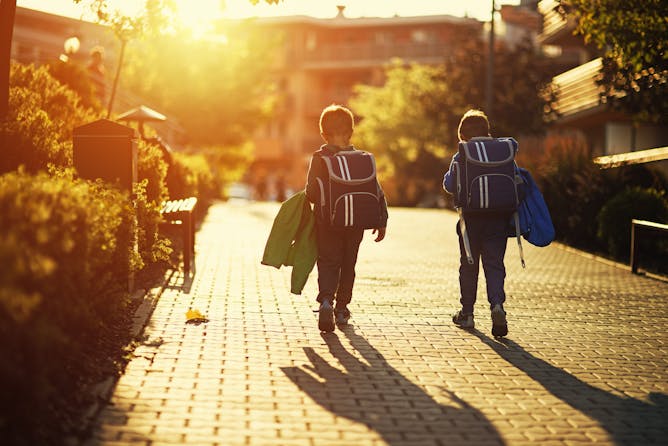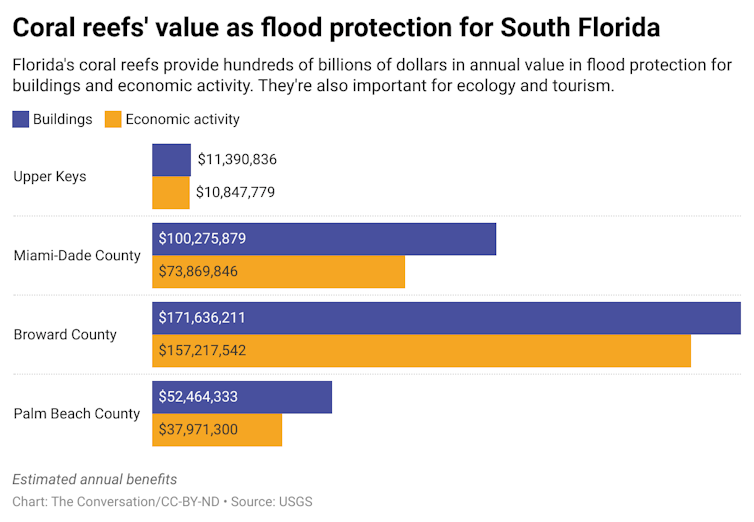|
I don’t know about you, but I have a terrible sense of direction. I’m easily lost unless I stick to my usual routes and don’t know north from south to save my life. If research is “me-search,” as they say, then my poor sense of direction must be part of the reason I became interested in studying spatial navigation abilities during my doctoral program in psychology.
People use spatial navigation daily to figure out where they are in their environment and where they need to go next. The strategies people use to traverse unfamiliar places – whether they rely on salient landmarks or cardinal directions – vary between individuals as well as between men and women. I am a science communication fellow at The Conversation U.S. this summer, and in a story published today, I discuss how freedom to roam during childhood may affect how well and how confidently people navigate as adults.
Also today:
|

Boys are often allowed to stray farther from home without adult supervision than girls are.
Imgorthand/E+ Collection via Getty Images
Vanessa Vieites, Rutgers University
Although some parents may be reluctant to let their children explore their surroundings alone, allowing kids to wander can help build their sense of direction.
|
Economy + Business
|
-
Ronnie Olesker, St. Lawrence University
Ben & Jerry’s decision to no longer sell ice cream in the occupied territories comes as Israel continues to lose the support of a group of Americans who once were stalwart allies.
-
Jennifer A. Jones, University of Florida
Volunteering can improve your life physically, mentally and emotionally. And it might help you find your next job.
-
Stephen McKeon, University of Oregon
Financial regulators are increasingly concerned about stablecoins, a type of cryptocurrency tied to an asset like the US dollar.
|
|
Education
|
-
Hasan Kwame Jeffries, The Ohio State University
The Algebra Project – a long-standing initiative to teach algebra to Black students who might not otherwise take it – sprang from Bob Moses’ work as a civil rights activist, a historian recounts.
|
|
Health
|
-
Ted Schwaba, The University of Texas at Austin College of Liberal Arts
Early exposure to lead pollution may lead to less mature personality traits as an adult.
|
|
Politics + Society
|
-
Maggie Jones Patterson, Duquesne University ; Romayne Smith Fullerton, Western University
The Associated Press will no longer name those arrested in minor crimes when the news service is unlikely to cover the story’s resolution. That’s a major shift in US news culture.
|
|
Environment + Energy
|
-
Bryan Keogh, The Conversation; Stacy Morford, The Conversation
A bipartisan group of senators said it reached a deal on $550 billion in new spending on infrastructure.
|
|
Science + Technology
|
-
Anjana Susarla, Michigan State University
Combating vaccine misinformation on social media requires blocking sources of misinformation – and giving researchers access to data about how misinformation spreads.
|
|
Trending on Site
|
-
Seena Mathew, University of Mary Hardin-Baylor
Mounting research shows that going for a swim can preserve memories, reduce mood disorders and increase mental acuity in all age groups.
-
Robert Gabriel Varady, University of Arizona; Andrea K. Gerlak, University of Arizona; Stephen Paul Mumme, Colorado State University
Calor sin precedentes y lluvias insuficientes están secando las fuentes de agua compartidas por Estados Unidos y el norte de México.
-
Ranjith Ramasamy, University of Miami
New studies show men who have had COVID-19 could face serious reproductive health issues.
Today’s graphic

|
|